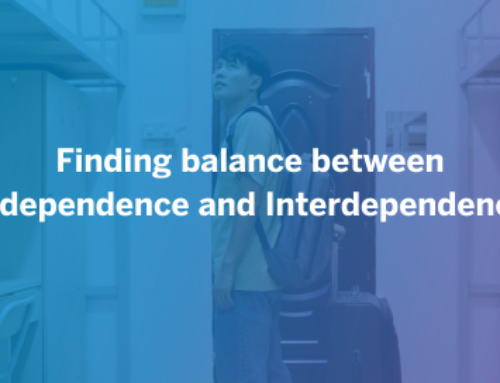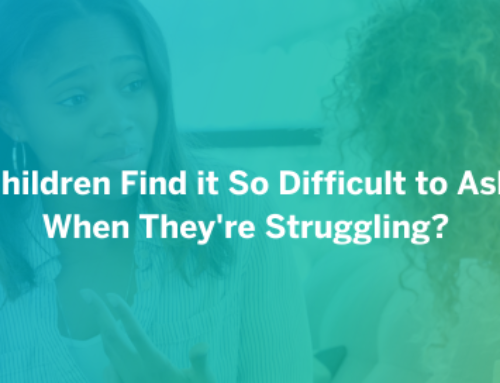
Getting caught in the middle of anything can often feel paralyzing; it’s no surprise that the middle school years can evoke the same sensation. I once read a quote by George P. Shultz that said, “He who walks in the middle of the road gets hit from both sides.” When it comes to the pre-teen to early teen years, the transition from childhood to adulthood can feel as if both sides of the road are wrong. On one end, you don’t feel like that young kid anymore who needs their hand held at every turn. On the other end, you still don’t want to be left entirely on your own and need guidance to help you find your way. The good news is that being caught in the middle can also be a powerful force driving your middle schooler to find their own identity.
One of the most challenging aspects of parenting is letting go. Teaching kids to be self-reliant is one of the best gifts any parent can give. This is a lot easier said than done, especially when we know all the dangers and stressors the adolescent years bring. As loving parents, our first instinct is to fix everything to make our kids’ life easier – we remind them repeatedly to do their homework, clean their rooms, get fresh air, stay hydrated, limit screen time, and on and on. We also want to protect them from making mistakes or getting hurt. Just like our tweens/teens are learning how to balance between two different stages in their life, parents also need to learn how to find the sweet spot in the middle of letting our kids fall and make mistakes but also make sure they don’t fall too hard and know you are still there to help them get up.
Finding the middle ground starts with awareness. Sometimes taking a step back and evaluating how much our kids have changed and grown can help us determine how much to let go and allow them to be self sufficient. For example, a year ago, your pre-teen may not have been able to take out the heavy trash on their own, but now they have more strength and could easily take over the trash duties. Maybe your child needed your help emailing a teacher when they didn’t understand something at school, but now you see how well they navigate talking to adults and realize they are more than capable of reaching out to their teachers on their own. These minor changes might seem non- consequential, but they can go a long way in helping your middle schooler build confidence and become more independent. Before you try to solve a problem foryour child, ask yourself if it’s something they can handle on their own. Using verbal guidance and encouragement can help them make big leaps during this transition period.
While helping your child become self-reliant and learning how to loosen the reigns is imperative in assisting them grow into confident young adults, your presence and guidance are more critical than ever. One great way to help support your tween/ teen is to build a strong parent community. Reaching out of our comfort zones and getting to know the parents or caregivers of our children’s friends can significantly reduce the chances of your middle schooler surrounding themselves with peers who are gravitating towards dangerous pressures such as substance abuse. Alcohol Substance Abuse Knowledge base reports around 30% of teens are offered drugs in middle school and high school. Studies and surveys find that close friends hold more sway over behavior than acquaintances or strangers.
Another great way to help protect our tween/teens is to talk openly and honestly about the pressures and situations they might encounter. Unfortunately, we cannot save our kids from making mistakes, but we can arm them with knowledge. Let them know the dangers of underage drinking, sex, and drugs. Talk to them about the consequences and help them develop ideas on what to do if they are in a situation where all or some of these things will be accessible to them. Try to be non-judgmental if they are curious about the reasons why some of their peers might be partaking in these dangerous behaviors.
Being in the middle is not a bad place to be when surrounded by community, support, andknowledge. When we learn how to walk the tight rope and balance letting go but staying involved, it canmake all the difference. The stressors of middle school can be one of the most influential times in growth and an awe-inspiring time for us parents to watch our children come into their own and flourish.







